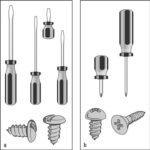Tuning your car can seem daunting, but with the right knowledge and tools, it’s achievable. This guide provides a step-by-step approach to get you started on your car tuning journey.
Understanding Car Tuning Basics
Car tuning involves optimizing fuel injection and ignition timing to maximize engine performance and power output. While “tune-up” once meant basic maintenance, today it refers to performance enhancement. This guide focuses on performance tuning, whether you DIY or hire a professional.
Why Tune Your Car?
The primary reason for tuning is to increase horsepower and torque. A well-tuned engine provides improved throttle response, acceleration, and potentially even fuel efficiency depending on the tuning style.
Factory Tuning Limitations
Factory tunes prioritize mass production, diverse models, emission standards, reliability across varying climates and fuel qualities, and cost-effectiveness over maximizing performance for individual drivers. They often utilize the same engine across multiple models, detuning lower-spec versions to create market segmentation. This leaves potential performance untapped, ready to be unlocked through tuning.
Potential Power Gains
Power gains from tuning vary significantly depending on the car model, engine type, and modifications. Naturally aspirated engines typically see smaller gains (5-10% or more) compared to turbocharged engines where boost adjustments can yield more substantial improvements. Researching your specific car model and “tune-only” results can provide a realistic expectation.
Tuning Your Car: DIY or Professional?
Tuning your own car is possible with the right tools, knowledge, and guidance. However, professional tuning ensures expert calibration and minimizes risks. This guide empowers you to understand the process, whether you choose DIY or professional tuning.
Tuning for Modifications
Aftermarket performance modifications, such as air intakes, exhaust systems, headers, turbochargers, or superchargers, necessitate tuning to optimize performance and prevent engine damage. Tuning ensures these modifications work harmoniously with the engine, maximizing power and ensuring safe operation.
Essential Tuning Tools
Effective tuning requires specific tools:
- Wideband AFR Meter: Measures air-fuel ratio in the exhaust to ensure optimal fuel delivery.
- Audio Knock Detection Equipment: Monitors engine knock (detonation) to prevent damage during tuning. Knock occurs when the fuel-air mixture combusts prematurely, causing harmful pressure spikes.
- Laptop: Used to interface with tuning software and hardware. A basic laptop with USB connectivity suffices.
Tuning Software and Hardware
You’ll need specialized software and/or hardware to control the engine:
- Standalone Engine Management System: Replaces the factory ECU, offering complete control over engine parameters. Suitable for heavily modified or race cars.
- Reflashing Tool: Modifies the factory ECU’s software, allowing adjustments to fuel maps, ignition timing, and other parameters. Common for less extensive modifications.
Learning the Tuning Process
Before making any changes, understand engine operation and the tuning process. Resources like online courses, forums, and communities can provide valuable insights. Learning how to interpret data from your tuning tools and make informed adjustments is crucial for safe and effective tuning. Remember that improper tuning can lead to engine damage.
Conclusion
Tuning your car is a journey that begins with understanding the fundamentals. By following this guide and utilizing the right tools and knowledge, you can unlock your car’s hidden potential and achieve your desired performance goals. Whether you choose the DIY route or enlist the help of a professional tuner, this guide equips you with the necessary knowledge to embark on your tuning adventure.

